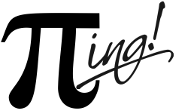 |
PING
0.9
Statistical data handling and processing in production environment
|
 |
PING
0.9
Statistical data handling and processing in production environment
|
Extract elements from a formatted list at given position(s).
clist : a formatted (e.g., parentheses-enclosed, comma-separated quote-enhanced) list;index : a list of numeric indexes providing with the positions of items to extract from list; must that the values of items in index should be < length of the list and >0;mark, sep : (option) characters/strings used respectively as a "quote" and a separator in the input list; default: mark=str(%"), and" sep=%quote(,), i.e. clist is a comma-separated list of quote-enhanced items; see %clist_unquote for further details.res : output list defined as the sequence of elements extract from the input list list so that:
i-th element in res is equal to the j-th element of list where the position j is given by the i-th element of index. returns: res=("ccc","bb","bb","dddd","a") since the index 100 is ignored.
Run macro %_example_clist_index for more examples.
clist are ignored, while whenever one index is <0, and error is generated.res returned is empty (i.e. res=).$ appears somewhere in the list. If you need to use $, you can reset the global macro variable G_PING_UNLIKELY_CHAR (see _setup_ file) to another dumb (unlikely) character of your own.%list_index, %clist_slice, %clist_compare, %clist_append, INDEX.